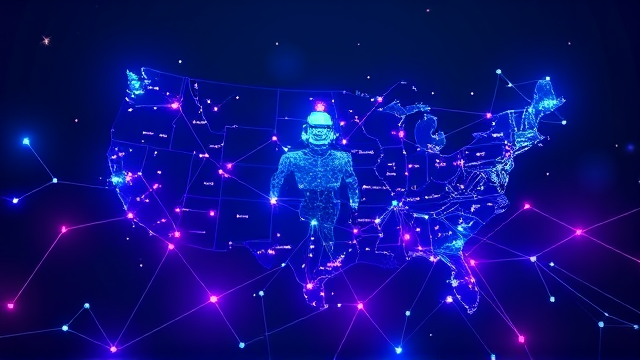This Startup Wants to Spark a US DeepSeek Moment
The United States, once the undisputed vanguard of artificial intelligence research, now finds itself in a precarious position of playing catch-up in the critical arena of open-source models, a domain increasingly dominated by international efforts like China's DeepSeek. This strategic lag isn't merely a talking point for tech insiders; it represents a fundamental shift in the geopolitical and technological landscape, one that could dictate who controls the foundational infrastructure of our digital future.While American tech giants have poured billions into ever-larger, proprietary models guarded by stringent APIs and commercial licenses, a global community of researchers and developers has been quietly building a parallel ecosystem of transparent, modifiable, and community-driven AI. The recent surge of powerful open-weight models from overseas has acted as a stark wake-up call, highlighting a growing innovation gap.Into this fray steps a daring domestic startup with a radical proposition aimed at nothing less than democratizing the most advanced tier of AI development: making reinforcement learning from human feedback, or RLHF, accessible to anyone with a laptop and an idea. RLHF is the secret sauce, the intricate and computationally expensive process that transforms a raw, knowledgeable but often clumsy and unreliable language model into a polished, helpful, and safe conversational agent like ChatGPT.Historically, this final, crucial step of alignment has been the exclusive purview of organizations with massive data-labeling budgets and access to sprawling GPU clusters, creating a high barrier that has effectively walled off the most significant AI advancements from the broader public. This startup's vision is to shatter that barrier, proposing a decentralized platform where individuals can contribute to and benefit from collective RLHF runs, effectively creating a crowdsourced, open-source alternative to the closed alignment processes of Big Tech.The implications are profound. By decentralizing RLHF, we could see an explosion of niche models fine-tuned for specific academic disciplines, local languages, or unique cultural contexts, models that reflect a plurality of human values rather than the homogenized corporate alignment of a single company.Imagine a model meticulously aligned by and for the global scientific community, prioritizing factual accuracy and logical rigor above all else, or another crafted by educators to be the perfect pedagogical assistant. However, this bold path is fraught with peril.The same democratizing force that could empower beneficial innovation also lowers the barrier for creating maliciously aligned AI—models optimized for disinformation, cyber-attacks, or social manipulation. The governance of such a decentralized system becomes a monumental challenge; who decides the reward model that guides the reinforcement learning? How do we prevent a tyranny of the majority or, worse, a covert takeover by bad actors? Furthermore, the technical hurdles of coordinating a globally distributed RLHF process, ensuring data quality, and preventing model collapse are non-trivial.Yet, the potential reward—a true, grassroots 'DeepSeek moment' for the West—makes the gamble compelling. It is a bet on the wisdom of the crowd over the wisdom of the corporation, on open collaboration over closed competition. If successful, it could re-route the trajectory of AI development away from a handful of walled gardens and back towards the foundational, open-source ethos that once defined the internet itself, ensuring that the future of intelligence is built by the many, not owned by the few.
Latest News
It’s quiet here...Start the conversation by leaving the first comment.
